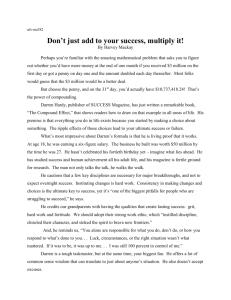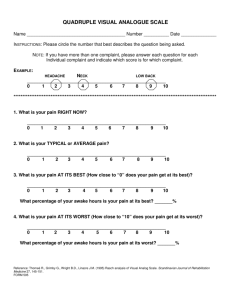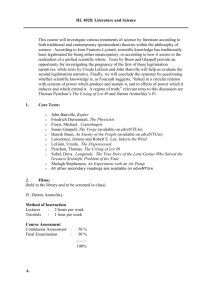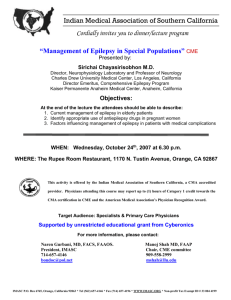Centennial Honors College Western Illinois University Undergraduate Research Day 2012
advertisement
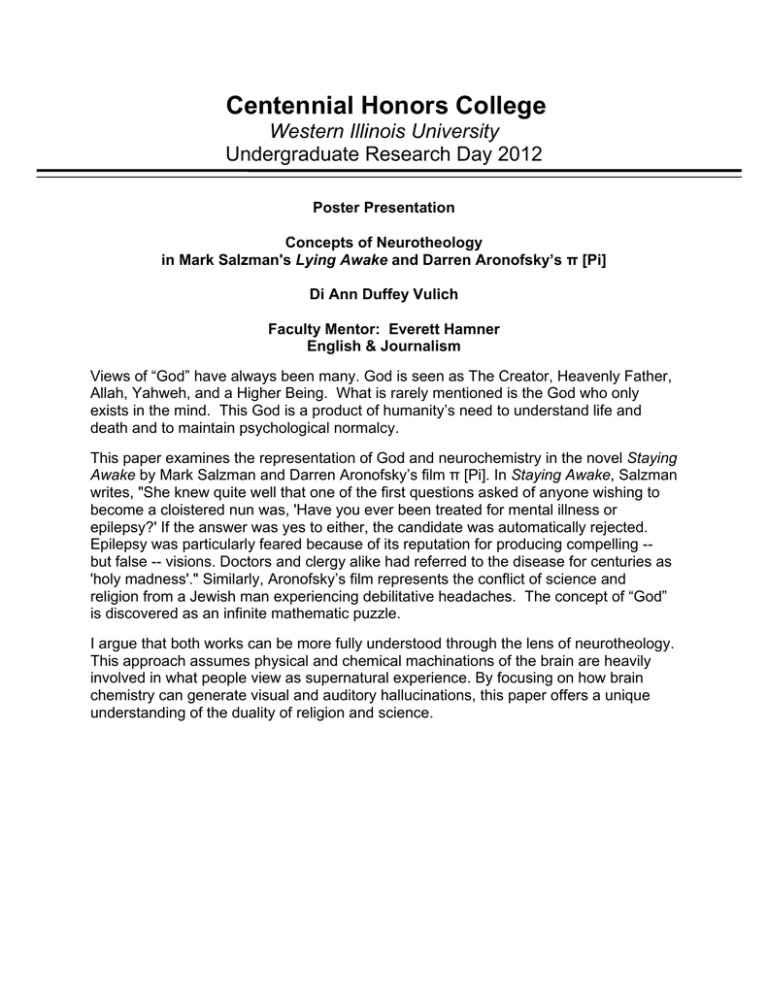
Centennial Honors College Western Illinois University Undergraduate Research Day 2012 Poster Presentation Concepts of Neurotheology in Mark Salzman's Lying Awake and Darren Aronofsky’s π [Pi] Di Ann Duffey Vulich Faculty Mentor: Everett Hamner English & Journalism Views of “God” have always been many. God is seen as The Creator, Heavenly Father, Allah, Yahweh, and a Higher Being. What is rarely mentioned is the God who only exists in the mind. This God is a product of humanity’s need to understand life and death and to maintain psychological normalcy. This paper examines the representation of God and neurochemistry in the novel Staying Awake by Mark Salzman and Darren Aronofsky’s film π [Pi]. In Staying Awake, Salzman writes, "She knew quite well that one of the first questions asked of anyone wishing to become a cloistered nun was, 'Have you ever been treated for mental illness or epilepsy?' If the answer was yes to either, the candidate was automatically rejected. Epilepsy was particularly feared because of its reputation for producing compelling -but false -- visions. Doctors and clergy alike had referred to the disease for centuries as 'holy madness'." Similarly, Aronofsky’s film represents the conflict of science and religion from a Jewish man experiencing debilitative headaches. The concept of “God” is discovered as an infinite mathematic puzzle. I argue that both works can be more fully understood through the lens of neurotheology. This approach assumes physical and chemical machinations of the brain are heavily involved in what people view as supernatural experience. By focusing on how brain chemistry can generate visual and auditory hallucinations, this paper offers a unique understanding of the duality of religion and science.


